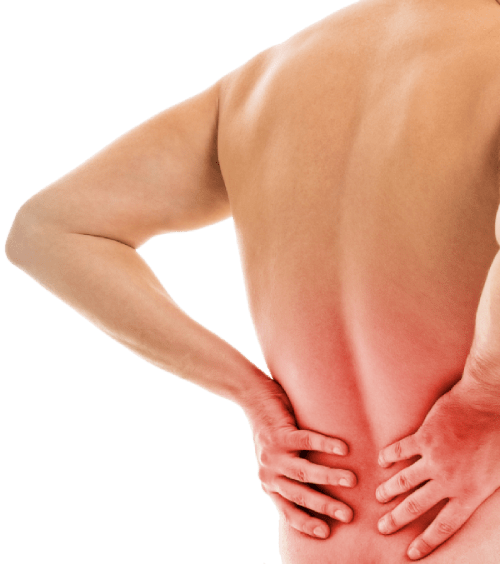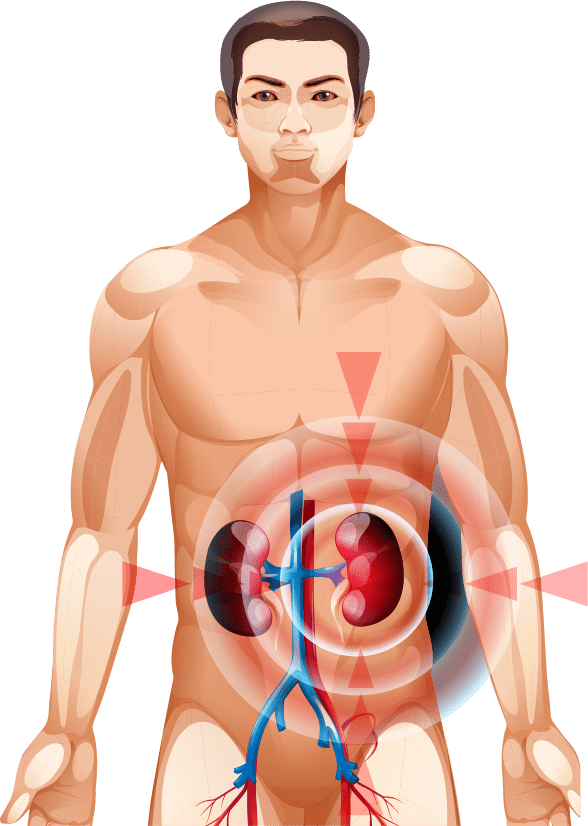Experience The Power Of Ayurved
Kidney Stones Treatment
Treat with Ayurved from the comfort of your home.
Consultation on Call, Video Call, Zoom, Skype
At your preferred time
Personalised & Prakriti based treatment
Get medicines delivered at your doorstep
Book An Appointment
*Your information & privacy is secured!
What are kidney stones?
A kidney stone is a hard deposit made of minerals and salts that forms inside the kidney. It is also known as renal calculi, nephrolithiasis, or urolithiasis.
Kidney stones are caused by diet, excess body weight, some medical conditions, and certain supplements and medications. From your kidneys to your bladder, kidney stones can affect any part of your urinary tract. A stone forms when the urine becomes concentrated, allowing minerals to crystallize and adhere together.
Although passing kidney stones can be painful, they usually cause no permanent damage if recognized and treated promptly.
The Ayurvedic term for renal stones is Ashmari in Sanskit.
Ashmari is composed of the words Ashma (stone) and Ari (enemy). It is also known as Moothrashmari (urolithiasis), which is a condition of the urinary tract. Ashma means stone, and Ari means enemy. In the case of Ashmari, there is s formation of renal stones. These stones cause severe pain, similar to a piercing attack by a ruthless enemy.
Types of kidney stones
According to modern medicine, there are 4 types of kidney stones
- Calcium stones
- Struvite stones.
- Uric acid stones
- Cystine stones
According to Ayurveda, Ashmari is of four types –
- Vatika – caused by vata vitiation
- Paitika – caused by pitta vitiation
- Shlaishmika – caused by kapha vitiation
- Shukraja – caused by dosha imbalance in semen
What are the causes of Kidney stones?
Family or personal history
People are more likely to develop kidney stones themselves if they have a family history of this disorder.
Dehydration
If you don’t drink enough water each day, you may develop kidney stones.
Certain diets
Some types of kidney stones can be caused by eating a diet high in protein, sodium (salt), and sugar.
Obesity
The risk of kidney stones is increased by having an elevated body mass index (BMI), a larger waist size, and weight gain.
Digestive diseases and surgery
Gastrointestinal surgery, inflammatory bowel disease, or chronic diarrhea also can result in kidney stones.
Other medical conditions
Kidney stones may also be caused by renal tubular acidosis, cystinuria, hyperparathyroidism, and repeated urinary tract infections.
What are the symptoms of Kidney stones?
In most cases, kidney stones don’t cause symptoms until they leave your kidney or pass into your ureter. However, it can cause the kidneys to swell and the ureter to spasm if it gets lodged in the ureters. If this occurs, you will experience the following symptoms:
- Pain beneath the ribs and in the side of the back
- Waves of pain fluctuating in intensity
- Burning while urinating
- Bloody urine
- Odorous urine
- Insistent urination, frequent urination, or urinating in small amounts
- Vomiting and nausea
- Infection-related fever and chills

Why Ayurveda is a better option for Kidney stones treatment?
As the primary step, modern medicine recommends drinking lots of water. This intense hydration can help pass a kidney stone naturally. The patient is advised to manage pain and infection with the help of painkillers and antibiotics. But, too many painkillers, antibiotics may harm a kidney patient’s health. And If the stone cannot be passed, surgery is the only option. Surgery, however, does not provide a permanent cure for kidney stones. Most kidney stones reoccur and cause severe infections.
However, Ayurveda works to eliminate the root cause of kidney stones. The treatment helps to dissolve the kidney stones and effectively prevents their reoccurrence.
How Ayurveda treatment for Kidney stones works?
The ayurvedic system offers three pillars of treatment – proper nutrition (ahaar), correct lifestyle (vihar), and personalized treatment (chikitsa). Following are the fundamental principles of Ayurvedic treatment for kidney stones.
Removal of the causal factors (Nidan parivarjanam)
By removing the dietary and lifestyle factors that lead to the formation of kidney stones, you prevent their growth and recurrence naturally.
Dietary solutions (Ahaar)
Ayurvedic treatment for kidney stones recommends consuming urine-promoting and kidney-friendly foods such as coconut water, barley, horse gram, etc., and avoiding stone-promoting foods like spinach.
Vihaar (lifestyle solutions)
A kidney patient must maintain healthy lifestyle practices, exercise, and have regular sleep patterns. Besides, Ayurvedic treatment for kidney stones recommends certain yogasana like bhujangasana. marjarasana and naukasana, and bhastrika pranayama.
Manas (Mental peace)
Meditation and mindfulness practice are recommended as part of Ayurvedic treatment for kidney stones since stress lowers overall immunity.
What are the Steps to Ayurvedic treatment for kidney stones?
Establishment of the constitution (Prakrati Parikshana)
A trained and experienced Vaidya will first assess your constitution using a detailed questionnaire and physical examination.
The constitution check is the first step towards a completely customized treatment.
Ayurvedic Massage (Abhyanga)
Ayurvedic body massage focuses on the abdominal area and stimulates kidney function. It also helps to enhance the overall metabolic rate and promote the natural eviction of kidney stones.
Body Detox (Shodhana)
Panchkarma is an important part of Ayurvedic treatment for kidney stones. This elaborate body detox procedure can bring you immediate relief from pain and discomfort caused by kidney stones.
The most important panchkarma procedure in the case of kidney stones is basti (Ayurvedic enema). This ayurvedic enema uses medicated oils and decoctions that help to disinfect and lubricate the entire urinary system. In this manner, it promotes the natural expulsion of kidney stones through urine.
Health recommendations (Ahaar-vihar)
In addition to the panchkarma and medication, you will receive a detailed plan for a healthy diet and lifestyle, personalized according to your prakrati or constitution.
Ayurvedic home remedies for Kidney stones
- Take 5-6 leaves of the pattarchatta plant and grind them with 1/2 tsp. of sugar candy. Take this mixture 2-3 times a day to prevent and cure kidney stones.
- Take 1 tsp. of awla powder mixed with 1 tsp. of roasted turmeric powder every morning to prevent kidney stone-induced infection.
- Boil 1 tsp. watermelon seeds powder, crushed seeds of 2 black cardamoms, and 1 tsp. of sugar in a glass of water. Drink this decoction 2-3 times per day to stimulate kidney function and eliminate kidney stones naturally.
Ayurvedic home remedies for Kidney stones
- Make sure to drink two to five liters of water each day. Don’t go overboard on the water intake.
- Cut back on protein and salt if you are eating too much of them.
- Take coconut water two or three times a day.
- Drink watermelon juice or fruit to cleanse your system.
- Consume fresh sugarcane juice. It helps eliminate toxins.
- Drink 50ml of radish leaves juice per day (muli ke patte).
- Drink barley water (jau). It will improve the pH of the body and reduce kidney stones.
- Exercise and keep your weight in check.
We hope that this information will help you to prevent and cure kidney stones naturally. To receive a completely individualized Ayurvedic treatment for kidney stones, please contact us.

